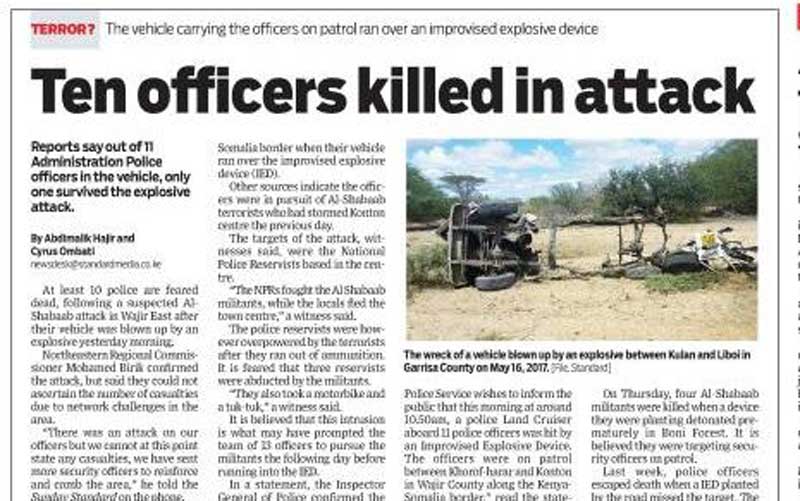×
The Standard e-Paper
Smart Minds Choose Us

The deaths of ten police officers after their vehicle ran over an improvised explosive device (IED) in Wajir East on Saturday are unacceptable. And that is because the death toll among Kenyan Security agents trying to keep the country safe from the Al Shabaab menace is on the increase.